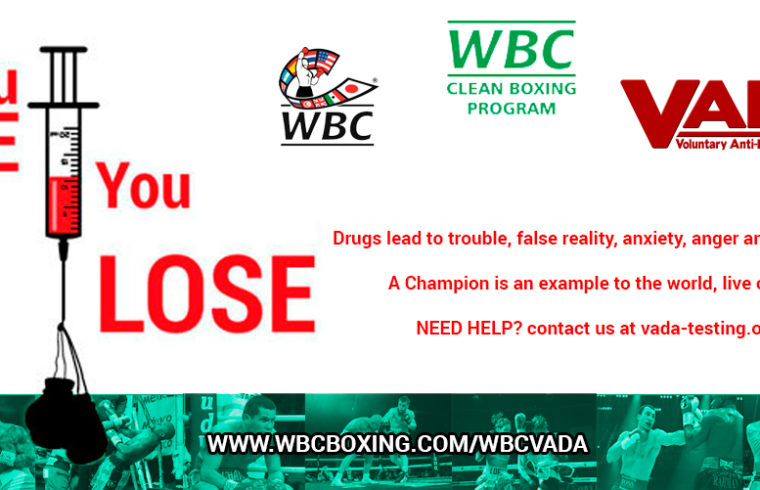ALEXANDER POVETKIN e BERNAME STIVERNE entrambi positivi all’ antidoping.
A QUESTO PUNTO TUTTI E DUE I CONTENDENTI DEVONO ESSERE DIFFIDATI DA WBC, leggi i risultati del test antidoping!
Stiverne tested positive for the banned substance methylhexaneamine (also known as dimethylamine or “DMAA”) on Nov. 4 as a result of the WBC’s Clean Boxing Program with VADA, the WBC said on Monday. Methylhexaneamine can be used as a stimulant to boost energy and is listed as a banned substance by the World Anti-Doping Agency (WADA).
WBC RULING REGARDING ALEXANDER POVETKIN’S WBC CBP ADVERSE FINDING ISSUED BY THE WBC BOARD OF GOVERNORS
December 17, 2016
I. ADVERSE FINDING
On December 16, 2016, VADA notified the WBC that Alexander Povetkin’s anti-doping test taken from his December 6, 2016 sample (the “Test”) according to the WBC Clean Boxing Program (“CBP”) yielded an adverse analytical finding for the banned substance Ostarine. The Test was conducted according to the CBP in connection with Mr. Povetkin’s bout against Bermane Stiverne for the WBC Heavyweight Interim World Championship scheduled to take place in Ekaterinburg, Russia on December 17, 2016.
II. OSTARINE
Ostarine is a Selective Androgen Receptor Modulator (“SARM”) which is believed to provide some of the same benefits of traditional anabolic/androgenic steroids such as testosterone (including increased muscle mass, fat loss, and bone density), while showing a lower tendency to produce unwanted side effects. At this stage, there are no SARMs available on the legitimate pharmaceutical market.
SARMs may be used by athletes to assist in training and increase physical stamina and fitness, potentially producing effects similar to anabolic steroids. For that reason, the World Anti-Doping Agency banned SARMs in January 2008.
III. MR. POVETKIN’S TEST AND RESULTS
The WBC learned of Mr. Povetkin’s anti-doping Test result about 20 hours before the scheduled Povetkin v. Stiverne Bout. For that reason, the WBC must make an immediate ruling on the matter.
IV. WBC’S INITIAL FINDINGS
Based on detailed research and information gathering, the WBC finds as follows:
1. Mr. Povetkin agreed to participate in the WBC CBP in connection with the Bout.
2. Ostarine is a banned substance under the WBC CBP by its inclusion in VADA’s List of Banned Substances.
3. The anti-doping Test of the sample collected from Stiverne on 6, 2016, yielded an adverse analytical finding for Ostarine.
4. Mr. Povetkin tested positive for the banned substance meldonium in April of 2016, on a test conducted under the WBC CBP. In that case, the WBC made a clear and specific ruling which the WBC will consider when issuing a final ruling in this case.
5. As the CBP’s Results Manager, the WBC has complete discretion as to the extent and nature of any penalty it imposes upon Mr. Povetkin.
V. WBC BOARD OF GOVERNOR’S RULING
This WBC Board of Governors’s ruling is based on the facts known to the WBC at the time of the verdict. Based on the adverse analytical finding of Mr. Povetkin’s “A” December 6, 2016 sample, the WBC has ruled as follows:
1. The WBC CBP considers Mr. Povetkin’s adverse analytical finding for Ostarine a violation of the WBC CBP under its Protocol;
2. The WBC with this withdraws its sanctioning of the Bout for the Heavyweight Interim World Championship; and
3. The WBC will conduct a thorough investigation of the circumstances of the case and will issue subsequent rulings as required.













